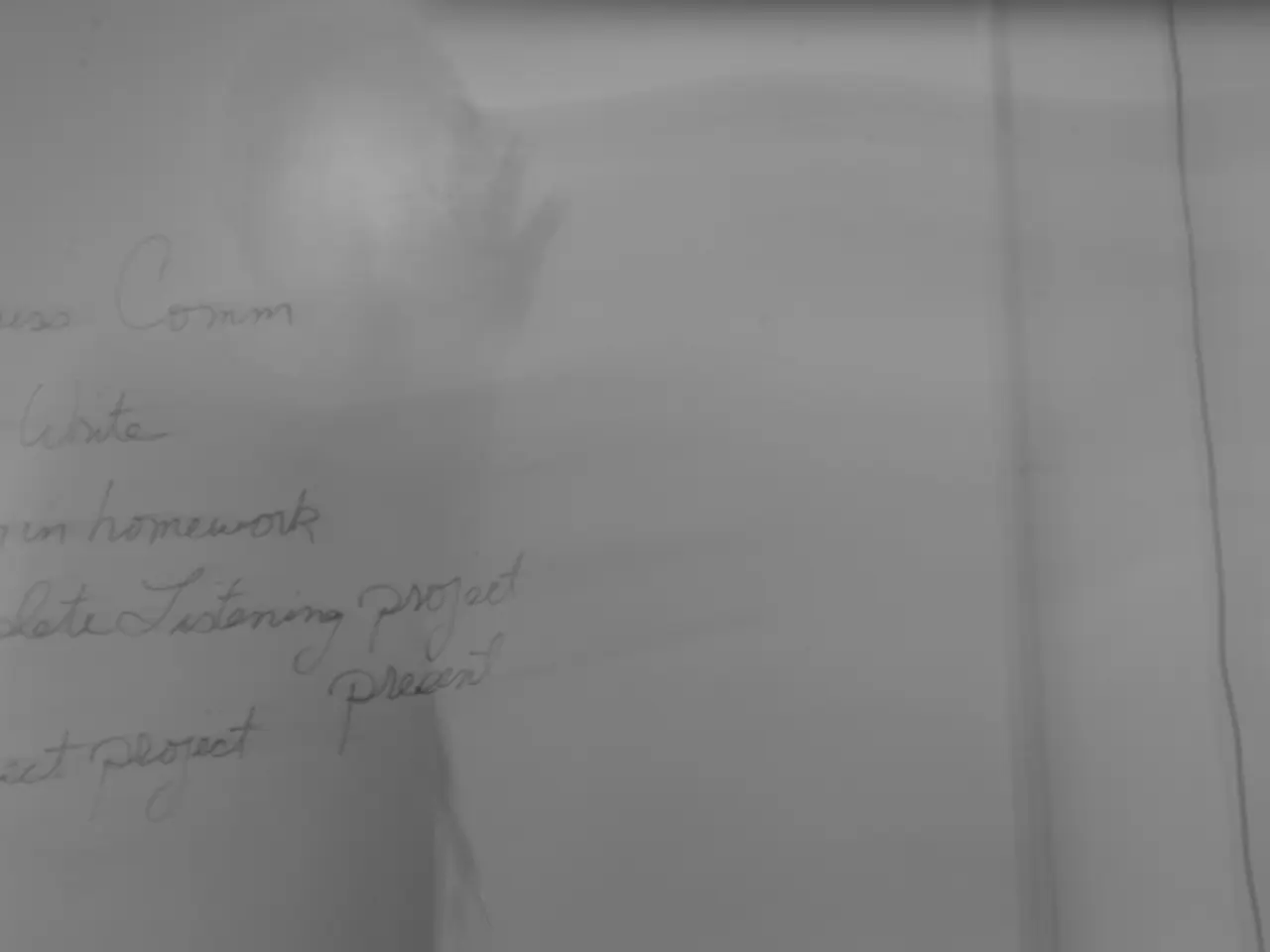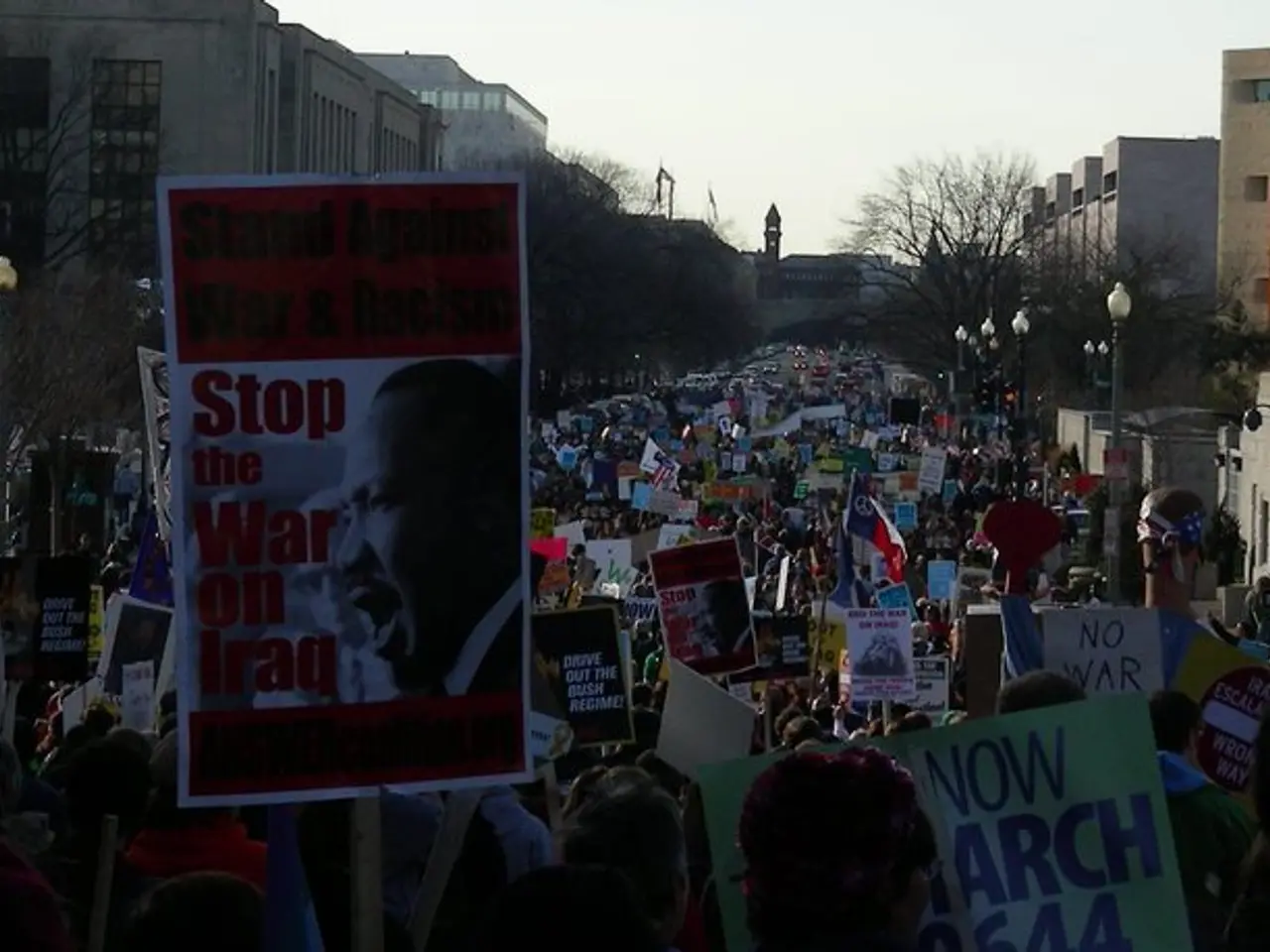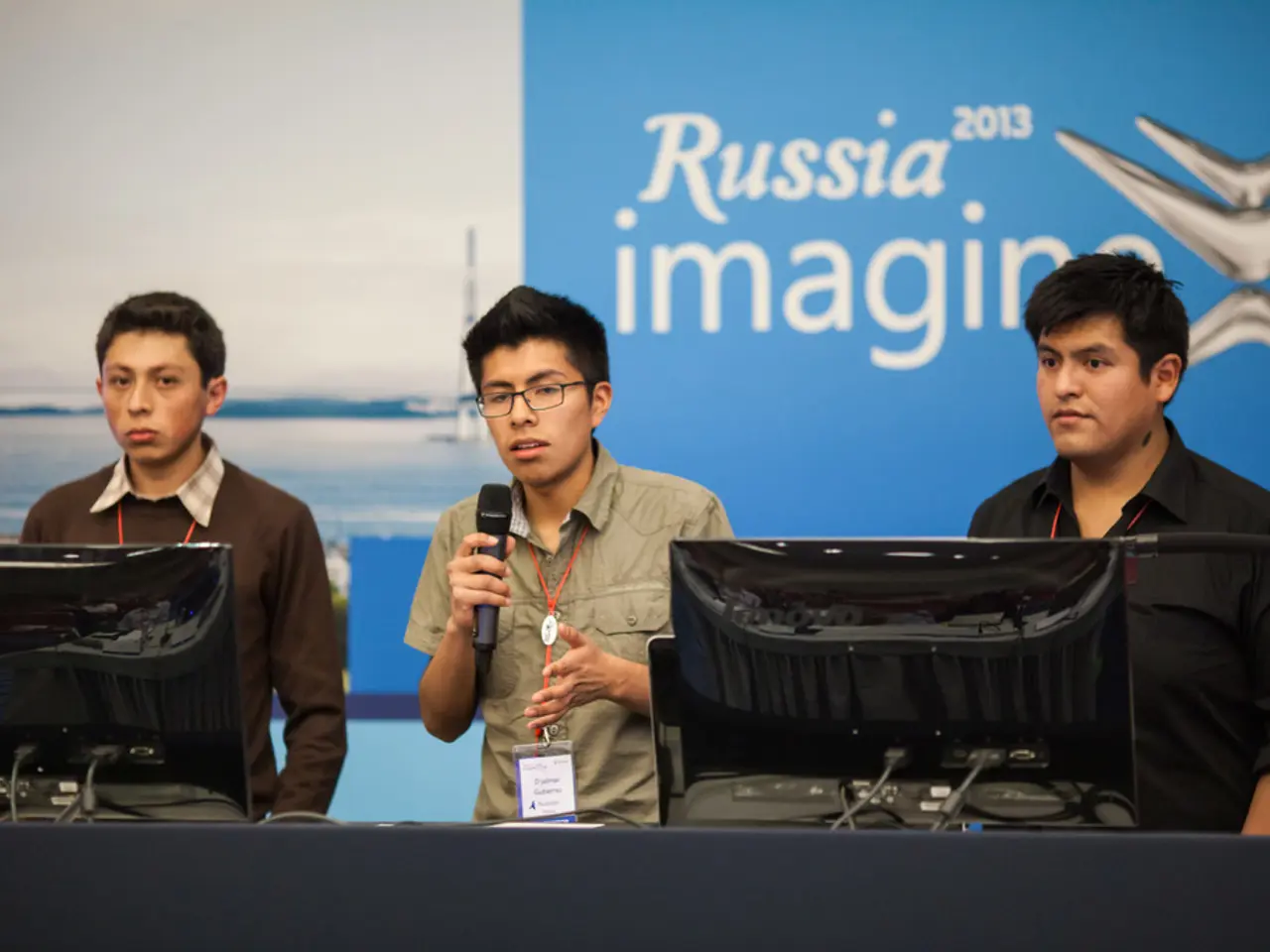Escalation in Trump-Lula Tariff Conflict as Brazil considers World Trade Organization over White House intervention
In a significant move, Brazil has announced its intention to file a formal complaint against the United States at the World Trade Organization (WTO) regarding the imposition of unilateral tariffs on Brazilian goods. This action, set to take place by late August 2025, could provide both legal and political leverage, setting a precedent for other BRICS and Global South nations facing similar challenges.
The tariffs, amounting to 50 percent, were imposed by former US President Donald Trump as retaliation for the treatment of his ally, former Brazilian President Jair Bolsonaro, who is currently under house arrest accused of attempting a coup. Brazil strongly denies these allegations and considers the tariffs unfounded.
In response, Brazilian President Luiz Inácio Lula da Silva has taken a measured approach, announcing a $5.5 billion credit package to support exporters hit by these tariffs and extending tax credits for importers producing export goods. Notably, Brazil has refrained from retaliatory tariffs to avoid worsening relations with the US.
This tariff conflict has heightened tensions between the US and Brazil. Lula asserts that Trump does not want to negotiate and has never spoken directly to him since the tariffs were imposed. Brazilian delegations sent to Washington in attempts to resolve the matter were largely ignored by the Trump White House and Republican senators loyal to Trump, with only a few Democrats showing sympathy but lacking the power to change trade policy.
Despite these challenges, Brazil's trade with the US increased in July before the tariffs took effect, indicating a complex commercial interaction. However, the broader implications of this dispute are far-reaching. The outcome could reshape trade diplomacy norms in an increasingly multipolar world.
Regarding Brazil’s relationships with other nations and the BRICS alliance (Brazil, Russia, India, China, South Africa), the tariffs seem to be part of a broader US strategy that also targets India with similar measures, which has strained US relations with both Brazil and India. Trump’s tariff policies have been viewed by some analysts as an effort to weaken BRICS cohesion by attacking key member states economically.
In Brazil, the tariffs have politically rallied support behind Lula and signaled his administration’s commitment to protecting national economic interests without escalating trade wars. Lula has also reiterated Brazil's sovereignty and called for "equal terms and mutual respect," reflecting a broader resistance among Global South countries to perceived Western trade coercion.
Notably, Lula has announced his intention to invite Donald Trump to COP30, the UN Climate Change Conference, indicating a willingness to engage in dialogue despite the ongoing dispute. However, he has stated his preference for engaging with other global leaders, such as Xi Jinping and Narendra Modi, rather than Trump.
In summary, the current status of the Trump-Lula tariff dispute is a test case for Latin America’s economic sovereignty. Brazil is balancing support for its exporters and maintaining openness to dialogue, while the US appears to seek to fracture the BRICS alliance through economic pressure. The WTO complaint, if accepted, could initiate a lengthy adjudication process that might stretch into 2026, with significant implications for global trade relations.
References:
[1] The Guardian. (2025). Brazil to challenge US over tariffs at WTO. [online] Available at: https://www.theguardian.com/business/2025/jul/01/brazil-to-challenge-us-over-tariffs-at-wto
[2] CNN. (2025). Brazil's Lula rejects Trump's invitation for direct negotiations over tariffs. [online] Available at: https://edition.cnn.com/2025/07/05/americas/brazil-lula-trump-tariffs-intl/index.html
[3] Reuters. (2025). Brazil to support exporters hit by US tariffs with $5.5 billion credit package. [online] Available at: https://www.reuters.com/business/us-brazil-trade-tariffs-2025-07-01/
[4] Financial Times. (2025). Brazil-US trade increases before tariffs take effect. [online] Available at: https://www.ft.com/content/73c58838-873c-4c9f-b69f-e5c828292b2b
[5] The Diplomat. (2025). US Tariffs on Brazil and India: A Strategy to Weaken BRICS Cohesion? [online] Available at: https://thediplomat.com/2025/07/us-tariffs-on-brazil-and-india-a-strategy-to-weaken-brics-cohesion/
- The Brazilian government, facing unilateral tariffs imposed by the US, has decided to file a complaint at the World Trade Organization (WTO), potentially setting a precedent for other nations in similar situations.
- The tariffs, amounting to 50 percent, were imposed by former US President Donald Trump as a response to perceived mistreatment of his ally, former Brazilian President Jair Bolsonaro, who is currently under house arrest for attempted coup allegations.
- Lula da Silva, the current Brazilian president, has responded with a $5.5 billion credit package to support impacted exporters, while extending tax credits for importers producing export goods, all without resorting to retaliatory tariffs.
- This dispute between the US and Brazil over tariffs has intensified political tensions, with Lula asserting that Trump refuses to negotiate and has not spoken directly to him since the tariffs were imposed.
- Despite these challenges, there has been an increase in trade between Brazil and the US prior to the tariffs taking effect, indicating a complex commerce dynamic.
- The broader implications of this dispute could shape trade diplomacy norms in a multipolar world, potentially reshaping global trade relations.
- In addition to the tariff dispute, Trump's policies have been seen by some analysts as an attempt to weaken the BRICS alliance by targeting key member states economically, such as Brazil and India.







